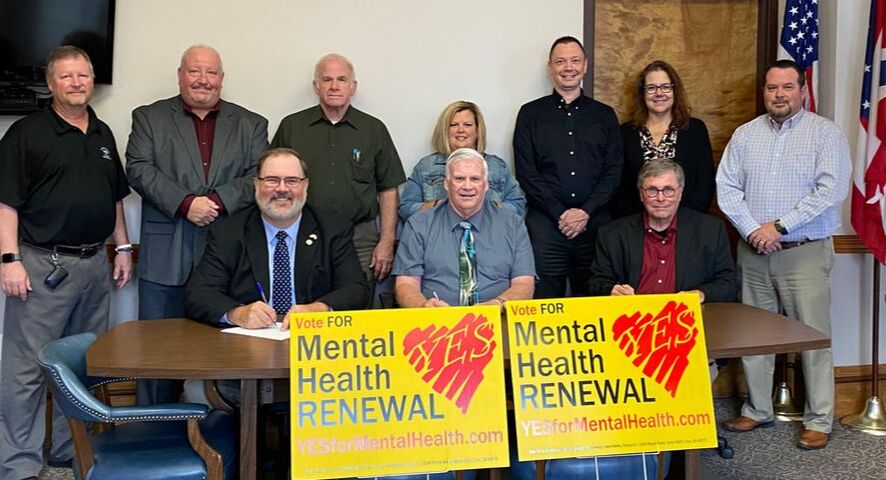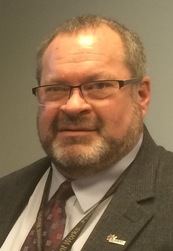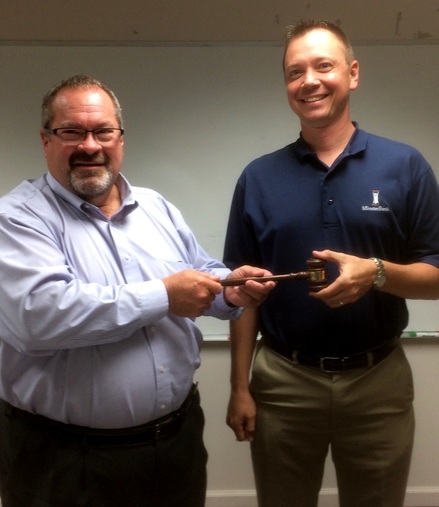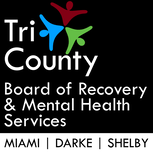|
The Tri-County Board of Recovery & Mental Health Services will accept public comments regarding the Board’s Calendar Year 2023 Budget between 4:00 pm and 4:30 pm on Wednesday, June 15, 2022 at the Board office, 1100 Wayne St., Suite 4000 in Troy. For further information or to request a copy of the Tri-County Board’s Calendar Year 2023 Budget, please contact the Tri-County Board at (937) 335-7727, extension 204.
 Seated, l-r, Commissioners Matt Aultman, Mike Stegall, Larry Holmes. Standing, l-r Brad Reed, Director of Community Resource Development for the Tri-County Board of Recovery and Mental Health Services; Tri-County Board members Dennis Butts, Terrance Holman, Mandy Martin, and Jason Wagner; Terri Becker, Executive Director; and Steve McEldowney, Director of Finance and Administration. Darke County Commissioners at their session Monday October 4 2021 endorsed the Tri-County Mental Health levy renewal with a Proclamation of Support.
The Tri-County Mental Health & Recovery levy is a 0.6 mill, 5-year renewal to provide ongoing funding for counseling and supportive services to children and adults through the operation of alcohol and drug addiction programs and mental health programs. Levy funds are administered by the Tri-County Board of Recovery and Mental Health Services. Tri-County Board Executive Director Terri Becker expressed her appreciation to the Commissioners for their support, saying, "The levy is a crucial part of the Board's funding that enables us to continue to address the mental health and addiction services needs in Darke County. The Commissioners are active partners in identifying local needs and solutions and we thank them for their endorsement." Since 2006, the levy has passed with about 2 of 3 voters in Darke, Miami and Shelby counties supporting. More information about the renewal can be found at www.YESforMentalHealth.com. The Tri-County Board of Recovery & Mental Health Services will accept public comments regarding the Board’s Calendar Year 2020 Budget between 4:00 pm and 4:30 pm on Wednesday, June 19, 2019 at the Board office, 1100 Wayne St., Suite 4000 in Troy. For further information or to request a copy of the Tri-County Board’s Calendar Year 2020 Budget, please contact the Tri-County Board at (937) 335-7727, extension 206.
The Tri-County Board of Recovery and Mental Health Services seeks a full-time behavioral health professional to provide administrative support and leadership to the Miami County Family and Children First Council, and NAMI of Darke, Miami, and Shelby Counties.
See full posting, read position description, and apply online here. At its September 16 meeting, the Tri-County Board of Recovery and Mental Health Services formally adopted a position statement opposing efforts to legalize marijuana in Ohio. In doing so, the Board joins an expanding list of public and private organizations, including business owners, healthcare and behavioral health professionals and law enforcement groups to oppose efforts to legalize marijuana in Ohio. The full text of the position statement is:
“The Tri-County Board of Recovery and Mental Health Services opposes the legalization and commercialization of marijuana for recreational purposes. The Board also opposes the constitutional amendment process for the purpose of legalizing the personal use of marijuana, designation of growth sites, and designation of testing facilities. “Legalizing marijuana for medical use should not be decided by legislative or voter initiative. Marijuana should be subject to the same research, consideration, and study as any other potential medicine, under the standards of the U.S. Food and Drug Administration (FDA).” Tri-County Board Executive Director Mark McDaniel noted that the position statement is very similar to one adopted by the Ohio Association of County Behavioral Health Authorities. That statement in turn was based on a position statement crafted by the Drug Free Action Alliance, DFAA. For more information and educational resources about the science and impact of marijuana, especially on adolescents, go to the DFAA website, www.drugfreeactionalliance.org. Good afternoon Chairman Huffman and members of the Committee. Thank you for the opportunity to speak to you today. My name is Mark McDaniel and I am the Executive Director of the Tri-County Board of Recovery and Mental Health Services. We are the ADAMHS Board that serves Miami, Darke and Shelby Counties. I have been the Executive Director of the Board for over 17 years and have worked in the behavioral health system for over 36 years. Over the span of those years I have provided direct clinical services, managed treatment teams and worked with families with both mental health and addiction issues.
To examine how the role of ADAMHS boards – and behavioral health care itself – is changing, I would like to briefly review where we have been, where we are now, and where we must go in the near future to meet the needs of the communities we serve in the most efficient and cost-effective ways possible. Timely clinical services are crucial to effective treatment of individuals with mental illness and addictions; but that effectiveness is tempered by what happens the other 23 hours of the day. Housing, employment and other support services play a crucial role in an efficient system of care focused on long-term recovery. Those who do well in recovery – that is, those who relapse less often, recidivate at a lower rate, and access fewer crisis services – are persons who have stable housing, meaningful employment, and social, emotional and wellness supports. Without these supports, those addicted to substances, and persons with severe mental illness, tend to follow the very inefficient path of living from crisis to crisis, taxing the most expensive point of interaction with emergency medical services; law enforcement, court and jail involvements; and emergency shelters. In recent years, ADAMHS Boards in general and the Tri-County Board specifically have spent significant resources on the expansion of client supportive services, housing options and vocational training. One example of social supportive services, SafeHaven is a client support program that is now available in all three counties and open to individuals who need help with their personal recovery and opportunities at socialization. In terms of vocational support, the Board maintains a contract with Opportunities for Ohioans with Disabilities that serves all three counties. This provides assistance to clients with job preparation and search. To provide stable and safe housing, the Tri-County Board owns houses and apartments in all three counties as well as maintains relationships with private landlords. We also maintain contracts for Adult Care Facilities and mental health residential services. Since access to Medicaid was extended in Ohio, the Board’s focus has shifted to providing 24/7 staffing at existing recovery homes to increase accountability and have expanded other recovery housing options. To aid in early recovery, Vivitrol projects are now active in all three counties to help with the heroin issue. Detox and residential substance abuse services are accessible through our treatment services providers. Trained Recovery Coaches will be introduced for the first time in our system in the coming months. Telemedicine was mentioned in several of the previous presentations. We now have telemedicine available in each of the three counties which has expanded access to doctors for patients. The Board has invested in reentry programs at both the prison and local jail level. This is a proactive approach to transitioning individuals returning to the community in a very structured and planned way. To give just one example, with support of the Tri-County Board, Community Housing Inc. has for more than two years implemented a prison in-reach reentry program to assess needs and connect inmates with services prior to their release. In that time, Community Housing has worked with 58 people. Just 7 of those – 12 percent – re-offended, compared to more than 27 percent statewide. Given the high cost of arresting, prosecuting, incarcerating and monitoring an offender, any opportunity to reduce recidivism by half or more – while at the same time helping those persons be productive and healthy citizens - must be seen as an efficiency. There is much more that needs to be done and the Tri-County Board has a plan. In the very near future we will be announcing the opening of a one-stop shop facility in Miami County which will offer a single point of entry for mental health and addictions, crisis, housing, vocational, consumer support, prevention and wellness, medical and even dental services under one roof. The overall goal of this plan is to streamline and create efficiency for access by individuals and families, and for those who refer. To reduce the impact of addictions and mental illness over the long term, prevention and wellness planning and programming are vital. ADAMHS Boards are uniquely positioned to anchor coalitions of vested interests to assess community behavioral health needs, plan activities that can effect change over the long term, and evaluate those activities for effectiveness. To be clear, prevention and wellness programs move the needle on the scale of years, not months. We want to see our communities becoming healthier over generations. Are prevention and wellness efforts efficient? Effective ones are. The Board is committed to supporting evidence-based prevention practices in our schools and in our communities. Being good stewards of the public trust means optimizing resources – both time and money – on prevention practices that meet national standards of effectiveness. In this way we maximize longterm outcomes and avoid using public resources where there is scant evidence for real change. We’ve all heard the phrase “An ounce of prevention is worth a pound of cure.” Nowhere is that more true than in community behavioral health. Preventing one person from reaching a mental health crisis, or from becoming addicted, or even delaying first use of substances by young people until they are adults and physically and emotionally better prepared to make good decisions, all have significant benefits in dollars NOT spent over a lifetime. While it may be impossible to tally to a specific number, there is no question that effective prevention is an efficient use of public funds. Yes, clinical services are the linchpin of behavioral health services. But what happens to that person in recovery the other 23 hours of the day are crucial to the effectiveness of treatment and the reintegration of that person into the community as a productive, tax-paying citizen. Safe, healthy communities are a goal we all share. The Tri-County Board is dedicated to finding ways for the people of Miami, Darke and Shelby Counties to work, live, laugh and love, free from the challenges of mental illness and addiction, and to do so efficiently and responsibly as a steward of the public trust. I would be remiss if I didn’t speak to two programs we have had great experiences with in our tri-county area. They have been mentioned in previous testimony but I wanted to speak to them. The first is Mental Health First Aid; many of us in this room have taken CPR/First Aid from the Red Cross. Mental health first aid curriculum is somewhat parallel to this widely established program in that it provides education to individuals about mental health, how to recognize the symptoms and what to do about it. The second program is the Tri-County CIT Academy. This collaboration between our system and the law enforcement agencies in our area has been a very strong one. I am proud to state that this last spring the CIT Academy celebrated its tenth anniversary while graduating its tenth class. The Miami, Darke and Shelby County area has 198 CIT trained officers and that is pretty good. Thank you, Mr. Chairman, for this opportunity, and for your time and I will answer any questions. Tri-County Board Executive Director to Provide Testimony on Efficiencies in Behavioral Healthcare8/31/2015
 Mark McDaniel, Executive Director of the Tri-County Board of Recovery and Mental Health Services serving Miami, Darke and Shelby counties, is among those invited to testify on Efficiencies in Ohio’s behavioral healthcare system September 8 in Portsmouth, Ohio. State Representative Steve Huffman (R-Tipp City) is chair of the Ohio House Healthcare Efficiencies Study Committee .The committee is tasked with examining healthcare efficiencies that lead to better health outcomes at a lower cost to Ohioans. Four hearings have been scheduled: September 3 in Sylvania on the topic of graduate medical education; September 8 in Portsmouth on behavioral health; September 16 in Cleveland on Medicaid and Aging; and September 22 in Fairfield on children’s health, innovative medical savings, and population health management. Speaker of the Ohio House Cliff Rosenberger (R-Clarksville) created the Healthcare Efficiencies Study Committee to examine healthcare models across Ohio that the House can help support and promote. The findings of the committee will potentially be used in legislation to be introduced later in the General Assembly. The behavioral health hearing will begin at 1:00pm at Shawnee State University in Portsmouth. A full text of McDaniel’s prepared remarks will be available on the Tri-County Board’s website, tcbmds.org, after the hearing. At its June 24, 2015, regular meeting, the Tri-County Board of Recovery and Mental Health Services heard Executive Director Mark McDaniel's updates to the Board's three-year Strategic Plan. The full plan with status annotations can be found here.
 Executive Director Mark McDaniel presents a commemorative gavel to outgoing Board Chair Jason Wagner of Versailles. Executive Director Mark McDaniel presents a commemorative gavel to outgoing Board Chair Jason Wagner of Versailles. The Tri-County Board of Recovery and Mental Health Services at its June 24 meeting elected Dennis Butts of Greenville as Chair and Rod Austin of Sidney as Vice Chair. Austin will also chair the Finance Committee, replacing Butts. Executive Director Mark McDaniel presented a commemorative gavel to outgoing Board Chair Jason Wagner of Versailles and thanked Wagner for his leadership since becoming Board Chair in July 2013. In making the presentation, McDaniel noted “how important it is to have a dedicated and engaged Board of community volunteers with a variety of experience and talents, to ensure that the needs of the communities they represent are being served, and that our tax dollars are put to use wisely and appropriately.” Two past Board members are rejoining the Board. Robert Menz of Sidney has been appointed by Shelby County Commissioners to a four-year term effective June 2, 2015. Menz previously served on the Board from June 2008 to March 2014. Katharine Ketron of Troy has been appointed by the Ohio Department of Mental Health and Addiction Services effective July 1, 2015. Ketron previously served from June 2007 through June 2014. The Board’s membership currently stands at 15 of the 18 maximum allowable under Ohio law. Darke County members are Butts, Wagner, Terrence Holman and Mandy Martin. Miami County members are Ketron, Tom DeVault, Jerry Herbe, George Lovett, Roger Welklin, and Marcia Youtz Henning. Shelby County members are Austin, Menz, Velina Bogart, Vicki Hornbeck, and Marianne Helmlinger. For more information about Board terms, appointment authorities and to express interest in being a Board member, go to tcbmds.org/board. |
AuthorBrad Reed is Director of Community Resource Development at the Tri-County Board of Recovery and Mental Health Services. Archives
May 2023
Categories
All
|
24-Hour Crisis Hotline 800.351.7347
If you or someone you know is in crisis and needs help,
call the Tri-County CRISIS Hotline 800.351.7347 The 24-Hour Crisis Hotline serves residents of Miami, Darke, and Shelby counties in Ohio. In crisis but can't talk? Crisis Text Line Text 4Hope to 741741 Suicide and Crisis Lifeline Call or Text 988, chat at 988lifeline.org |

Tri-County Board of Recovery & Mental Health Services
1280 N. County Road 25A, Suite #1 Troy, OH 45373 937.335.7727 | FAX 937.335.8816 Email us at [email protected] M-F 8:00AM - 4:30PM. Closed federal holidays. Services provided are funded in whole or in part by your continued support of the Tri-County Mental Health Levy.
The Tri-County Board of Recovery and Mental Health Services is an Equal Opportunity Employer |

 RSS Feed
RSS Feed